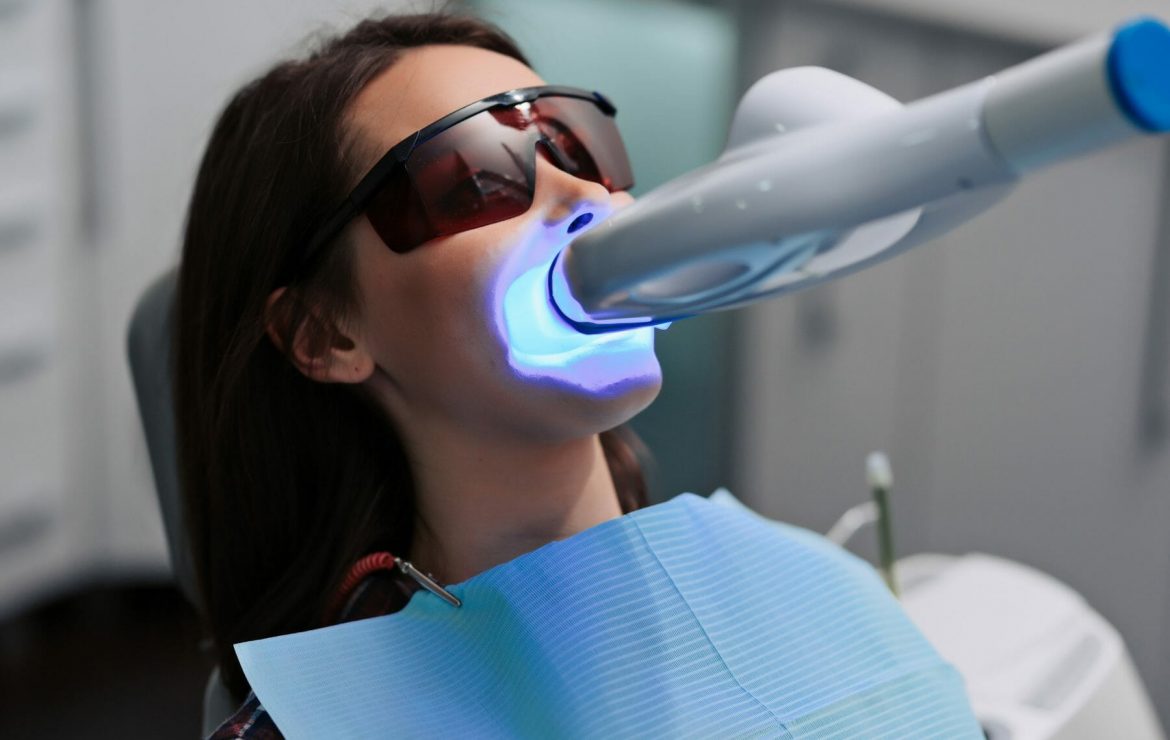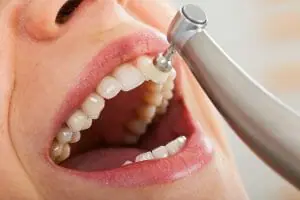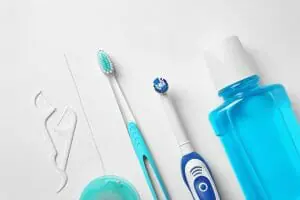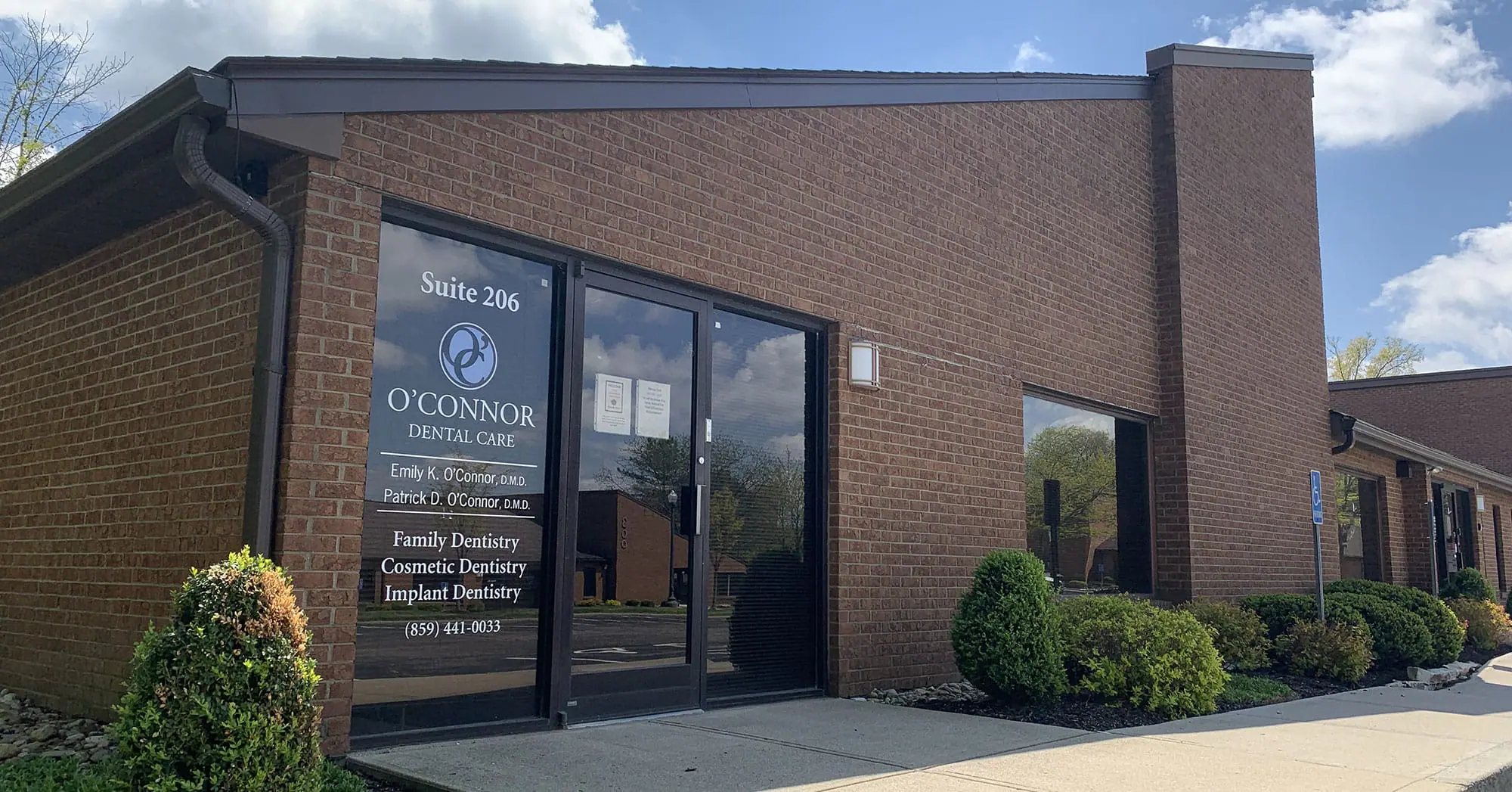Is Teeth Whitening Safe?

Having a white, bright smile is the goal for many of us. It’s not only the way we greet the world with confidence, it’s often the visible indicator that we put lots of time and care into having healthy teeth and gums.
But sometimes, no matter how much we brush and floss, our teeth may not be as white as we want them to be. Most people who feel their teeth aren’t quite white enough often opt to have them whitened, either at home or professionally, in their dentist’s office. (We at O’Connor Dental Care offer our patients take-home teeth whitening trays.)
Despite the popularity of teeth whitening procedures, you may still wonder – is teeth whitening safe? We’ll tell you all about teeth whitening, its efficacy, and its safety.
Why aren’t my teeth ultra-white already?
There may be several reasons your teeth aren’t as bright white as you’d like them to be. Commonly, our teeth lose some of their luster as we age, since our white enamel wears out over time, exposing the more yellowish dentin inner layer of the tooth.
Habits are also a huge contributor to stained teeth. The American Dental Society (ADA) lists the worst teeth-staining offenders as:
- Drinks: Tea, coffee, and red wine can all stain teeth when regularly consumed and when we don’t brush immediately after drinking them. These beverages contain chromogens, pigments that actively stain tooth enamel.
- Smoking tobacco products: Tobacco cigarettes contain tar and nicotine, two items that also stain tooth enamel.
- Medications: Antihistamines, high blood pressure, and antipsychotic medications may stain tooth enamel.
- Certain medical treatments: Chemotherapy and radiation exposure to the head and neck may also cause tooth enamel stains.
- Trauma: Injury to your mouth can prompt your teeth to change color, as dentin production protects the teeth against future harm.
What types of teeth whitening products are popular?
There are many types of teeth whitening products available, so much so you may be curious what the differences amongst them are.
If you’re dissatisfied with the color of your teeth, you may start your quest for whiter teeth with a whitening toothpaste. Just about every toothpaste brand has at least one whitening paste that contains baking soda, chemicals, and/or abrasives that may lighten the color of tooth enamel. These are generally only a few dollars and a cost-friendly option for most to try.
Tooth whitening kits are also popular products at pharmacies and grocery stores. They often comprise strips, trays, and brushes and can make teeth appear whiter after using them as instructed. These are more expensive than whitening toothpastes, although they often show results quicker because they contain peroxide and you apply them directly to tooth surfaces.
Take-home kits from your dentist, such as what we at O’Connor Dental Care provide, are another popular choice. They contain a high percentage of hydrogen peroxide and, when used as directed, can gradually lighten teeth. Take-home whitening kits from the dentist are often more expensive than OTC kits, but because they contain a higher concentration of bleach, they usually work better and produce noticeable results faster.
Natural remedies are also gaining popularity amongst people who want whiter teeth but may resist the idea of using bleaching products. Oil pulling and using charcoal-infused tooth care products are common, though their efficacy will also depend on your teeth, your habits, and how you use them.
Are whitening products safe for my teeth?
We’re often asked if tooth whitening is safe, and it is a completely reasonable question to have. After all, many tooth whitening products contain bleaching agents, as we’ve noted.
For the most part, teeth whitening is safe. There are some things to consider before you decide to bleach your teeth, however.
People who should not whiten their teeth include:
- Those with sensitive teeth: If you use sensitive toothpaste, abstain from ultra-cold beverages, or suffer occasional toothaches, bleaching may injure already-sensitive teeth.
- If you have gum disease: Gum disease is no joke and is something that will affect your dental decisions for the rest of your life. Because peroxide is common in teeth whitening products, it will be in direct contact with your gums for prolonged periods. This can inflame the gums of any patient, but those with periodontal disease need to be extra careful.
- If the cost is a factor: Since it’s a cosmetic procedure, most dental insurance providers do not cover teeth whitening costs. Depending on which type of whitening system you use, teeth whitening may be too pricey for many people’s budgets.
How do I know if teeth whitening is safe for me?
Unsure if you fall into the above categories or not? Set up a consultation with your dentist. They’ll go over your dental history and help you understand your individual risks, if any, associated with teeth whitening.
If you haven’t whitened your teeth before but feel the common risk factors we stated do not apply to you, your best course of action is still to talk with your dental care provider.
If you’re a patient of Doctor Emily here at O’Connor Dental Care, or you’re looking for a new dental team, plan your visit with us! We’d love to talk to you about your teeth whitening needs.











